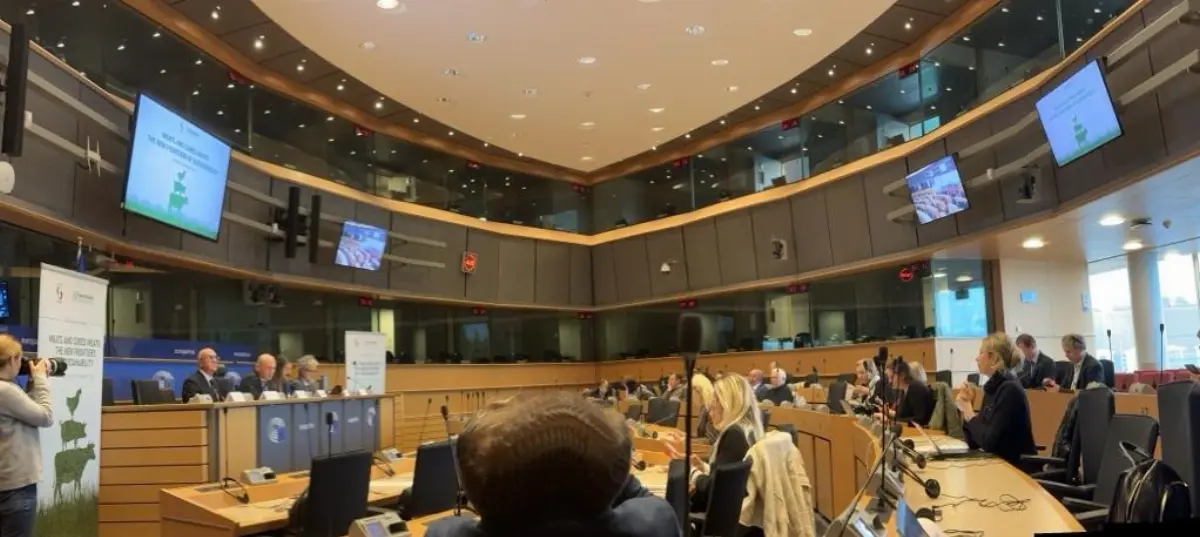
Meat and sustainability/2. Foods of animal origin essential in global nutrition
The data emerged from the presentation in Brussels of the volume “Meats And Cured Meats: The New Frontiers of Sustainability”

Livestock and circular economy: Italy 4th biogas producer in the world and 2nd in the EU.
At the presentation today in Brussels of the volume “Meats And Cured Meats: The New Frontiers of Sustainability” (read EFA News), some insights on meat and nutrition were offered by one of the co-authors, Dr. Elisabetta Bernardi, nutritionist, biologist and specialist in food sciences. The scholar highlighted the value of foods of animal origin in the context of human nutrition: “Recent studies allow us to evaluate the quality of proteins in foods in relation to the needs of human beings. While it is true that animal products provide only 18% of calories, they contribute 34% of proteins and 55% of essential amino acids. The latter are key parameters in the evaluation of food quality and", adds Bernardi, "when the environmental footprint of a food of vegetal or animal origin is calculated, considering the ability of this food to cover human needs for essential amino acids , the ecological footprint of foods of animal origin - both in terms of land use and greenhouse gas emissions - is almost similar or even lower than that relating to the production of vegetable proteins, with the exception of soy, which however is not in the Mediterranean tradition". The expert then concluded: “Furthermore, recent studies have rehabilitated red meat because there is limited scientific evidence and confounding factors (bias) between this food and health risks, and it is always necessary to consider the diet in its entirety”.
Ettore Capri , professor of agricultural chemistry at the Catholic University of the Sacred Heart, also returned to the topic of the sustainability of Italian livestock farming, taking stock of the Italian model, recalling how the Italian livestock system is an advanced model not only at the European economic level circular: "In recent years", says Capri , "we have witnessed a progressive awareness of the sector which has methodically taken steps to regenerate resources and reduce waste". Today, in fact, Italy is the 4th producer in the world of biogas and second in Europe after Germany. The development of Carbon Farming activities goes in the same direction: "It is a series of agricultural practices aimed at food production", explains Capri again, "which at the same time are able to sequester atmospheric carbon with greater efficiency. It is a natural ecosystem process that livestock farming intensifies thanks to the primary role played by the production of organic substance to be allocated to the soil according to a principle of circular economy of resources and the development of energy communities in the territories" .
(2 - end)
EFA News - European Food Agency